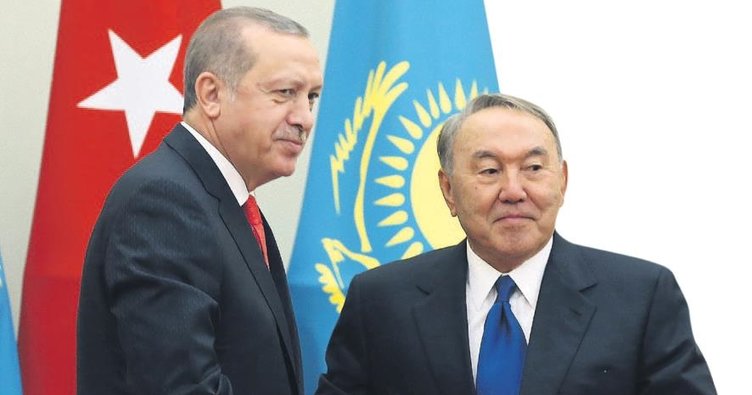
President of Turkey Recep Tayyip Erdoğan paid a two-day visit to Kazakhstan between the dates 8-10 September 2017. President Erdoğan also participated in the Organisation for Islamic Cooperation Summit on “Science and Technology” that was held between the dates 9-10 September 2017 in Astana, Kazakhstan. The agenda of the two leaders is expected to cover both bilateral and regional issues such as current events taking place in Myanmar and countering the Gülenist Terror Group (FETÖ) activities and increasing the bilateral cooperation.[1] Relations between Turkey and Kazakhstan have been developing rapidly in the last years. High-level visits, bilateral agreements and engagements within the regional formations have been improving ties between two countries.
There are two main drivers in the bilateral relations; firstly, in the last couple of years Kazakhstan has been more active in the international arena and is seeking support from international community. Secondly, Turkey, being aware of the changing global economic order and having direct connections with the sea and surrounding continents, positioned herself in the center of the Euro-Asia region with energy and transportation projects. Turkey always had brotherly ties with Turkic states, therefore, it sought for opportunities to strengthen ties with the Turkic states of Central Asia that won their independence after the breakup of the Soviet Union.
Besides cultural and historical ties, Kazakhstan is an important market with 18 million people and rich resources. Considering that Kazakhstan is geographically positioned between two powerful countries (China and Russia) and that there are legal disputes among littoral countries in the Caspian Sea basin, it is possible to say that President of Kazakhstan Nursultan Nazarbayev has been successful in terms of adopting balancing policies for his country and promoting stability in Central Asia. Kazakhstan is encouraging the projects aiming to establish a united Kazakh identity but also integrating herself with the international community, especially via increasing her visibility in front of the international community. Turkey has been supporting the efforts of Kazakhstan since the latter won its independence. For instance, Turkey paid a special interest in EXPO 2017 and within the context of EXPO 2017 National Day of Turkey, which was held on 10th of August in Astana, high-level officials from Turkey together with representatives from business circles participated in the Kazakh-Turkish Business Forum.[2]
In a wider context, when we look at the Kazakhstan-Turkey relations, we can divide it into three fields; economy, political, and security.
Political Relations
In the 1990s, the changing environment in the post-Soviet region with the emergence of newly independent countries has challenged the adaptation capabilities of Turkey, since she was surrounded with a region going through major and rapid changes. In this new, blurry environment, Turkey was always supportive particularly towards Central Asian countries. Turkey was the first country to recognize the independence of the Central Asian countries after the collapse of the Soviet Union. Strong historical ties and the sense of brotherly relations have led to the process to build further relations, followed by a more institutionalized approach. Even though Turkey was presented as a “model” to newly independent countries in terms of an example country that accommodates religious and traditional values and promoting democracy at the same time, political characteristics and strategies of the Turkey’s policies on Central Asia in the 1990s was rather blurry. Yet politicians, scholars, intellectuals, and businesspeople visited new independent countries to draw a roadmap for the future.
The relations between Kazakhstan and Turkey have always been stable and have been established on solid grounds. The desire to establish a high-level forum to cover bilateral issues naturally emerged from such positive relations. In 2009, the Strategic Partnership Agreement was signed between the two countries during President Nazarbayev’s visit to Turkey. In 2012, High Level Strategic Cooperation Council was established upon President Erdoğan’s visit, then Prime Minister, to Kazakhstan. High level contacts and meetings have been conducted over the years. The upcoming High-Level Strategic Cooperation Council is expected to take place in Turkey in 2018.[3]
Moreover, Kazakhstan is currently the only country in Central Asia that hosts a Yunus Emre Institute, which is affiliated to the Yunus Emre Foundation in Turkey. Yunus Emre Foundation and the Yunus Emre Institutes aims to promote Turkish language and culture abroad. In addition, Kazakh-Turkish Akhmet Yassawi University based in Turkistan, Kazakhstan was established in 1991 right after the dissolution of the Soviet Union. Today, there are approximately 13,000 students at the University pursuing education in various departments.
Besides good bilateral relations, Turkey and Kazakhstan have been supporting each other within international organizations and the international arena as well. When crisis occurred between Russia and Turkey following the downing of the Russian warplane in 2015, Kazakhstan initiated talks between the two actors at the highest level and moderated the mending of their relations. Kazakhstan’s support and determination paid off as the possibility of a prolonged crisis between Russia and Turkey was eliminated, and the relations between the two countries have returned to their normal level. Kazakhstan’s efforts to focus on the solving the crisis in Syria and gathering relevant actors around the same table called “Astana Process” showed Kazakhstan’s intention to be involved in the regional problems in other parts of the world.
Turkey supported Kazakhstan’s non-permanent membership to the United Nations Security Council and Turkey supported Kazakhstan’s EXPO 2017 candidacy particularly in the countries in which Kazakhstan does not have representation such as the ones South America and Africa.[4]
Economic Relations
On 9th of September, during the President Erdoğan’s visit to Astana, investment agreements worth $590 million were signed between Kazakh and Turkish companies such as Calik Holding, Yildirim Holding, Yildizlar SSS Holding, Agrobest Group, and others.[5] Since 2012, 18 investment projects worth $667.5 million were implemented by Turkish companies in Kazakhstan.[6]
The new business deals cover different areas. At the press conference held on 9th of September, President Nazarbayev stated that: "We have agreed to benefit from Turkey's knowledge and experience in the sectors of textiles, food, mining, industry, construction, electronics, agriculture, and tourism," and added that that the Inter-Governmental Economic Commission will work on the target.[7] Following the press conference, protocols and memoranda of understanding were signed, such as the Turkey-Kazakhstan Intergovernmental Joint Economic Commission 10th Term Meeting Protocol, the New Sinergy-Joint Economic Program, and the 2017-2020 Action Plan Protocol.[8]
According to the statement published by the Prime Ministry of Kazakhstan, trade turnover has been increasing in the last 6 months and there are more projects to come in the upcoming years: “With the active participation of the Kazakh-Turkish Intergovernmental Commission on trade and economic cooperation (IGC), a new draft protocol of the joint economic program ‘New Synergy’ has been agreed to date, which includes 26 joint investment projects worth about $1 billion.”[9]
Economic relations between two countries have been through ups and downs in the last decade. The trade volume was around $1 billion in 2005, $4.5 billion in 2012, and $2 billion in 2016. Many argue that the reasons behind the decrease is not the outcome of a decrease in economic activities between two countries, but rather that both markets were affected by the global economic trends and the decrease in oil prices.
The leaders of both countries have set the target to achieve $10 billion bilateral trade volume as soon as possible. There are around 600 Turkish companies operating in Kazakhstan[10] and providing job opportunities to 15,000 people. According to Daily Sabah, Turkish businesspeople mainly focus on “the food sector, the pharmaceutical and chemical industry, construction, hotel management and manufacturing”[11] and the total amount of the Turkish investments in the country is over $1.8 billion.[12] The amount of International Direct Investment from Kazakhstan to Turkey was around $681 million in 2015 and there are currently 482 Kazakh-capitalized companies in Turkey.[13] Anadolu Group is among the most active Turkish companies in Kazakhstan providing job opportunities to 2000 people, operating two beer factories and a Coca-Cola factory.[14]
At the Turkish-Kazakh Business forum which took place within the framework of EXPO 2017, DEİK/Turkey-Kazakhstan Business Council President Mert Sarı pointed out to the growing economic potential of Kazakhstan by stating; "Kazakhstan is one of the countries becoming prominent within the recent years in terms of its economic potential, social peace, political and economic stability, steps taken for settlement of market economy and corporate reforms made, constructive policies aiming for resolving regional and international disputes and other factors."[15]
Kazakhstan is member of Russia-led Eurasia Economic Union and has strong economic ties with Russia, and recently with China. As the Governor of South Kazakhstan region Zhanseit Tuimebayev stated at the Kazakhstan-Turkey Business and Investments forum which was held in February 2017 in Shymkent, as a member of the EEU, Kazakhstan provides Turkey to open up to a market of 200 million people[16].
Further steps to promote bilateral economic cooperation are expected to be taken in the short-term future. Nihat Zeybekci, the Minister of Economy of Turkey, proposed “a visa-free regime for migrant workers” between Kazakhstan and Turkey at the Kazakh-Turkish business forum, on 17th of August 2017.[17]
Kazakh and Turkish businesspeople also focus on the regional projects in order to promote cooperation between two countries. For instance, in 2012, at the Kazakh-Turkish Business forum establishment of a joint industrial zone called “Kazakh-Turkish industrial zone” in the Ordabasy District of South Kazakhstan.[18] The total area of the zone is planned to be around 50 hectares, however, there is a possibility to expand the area to 250 hectares.[19] Turkish companies are expected to be more active in the upcoming years as there are negotiations and plans on the table of both sides.
Last but not least, Turkish Eximbank is among the components of Kazakh-Turkish economic relations. Turkey provides credits for Central Asian countries as well. According to the Turk Eximbank 2012 Annual Report, Kazakhstan has the second largest share among the countries that benefit from the contributions provided by Turk Eximbank.
Security and Military Relations
Kazakhstan and Turkey have developed ties in the security field as well. The bilateral “Agreement on Cooperation in the field of military education” was signed in 1993, “Agreement on Cooperation in the field of military education, science and technology” in 1994, and “Agreement on Cooperation in the field of technology and defense industry” in 1996. Turkey also provides technical assistance and trainings to Kazakh security and law enforcement forces via mainly Turkish state agencies related to security and Turkish Cooperation and Coordination Agency (TİKA). Although, compared to other countries such as Israel and Russia, trade volume in the area of military is relatively low between Kazakhstan and Turkey.
The cooperation among private and semi-private companies is also developing. In May 2017, Tarık Ziya Kaboglu, CEO at Kazakhstan Aselsan Engineering in Kazakhstan co-established by Kazakhstan and Turkey in 2011[20], stated that the factory is now operational in Kazakhstan. The total amount of the investment made in the factory is around $44 million, half of it covered by Kazakh government and the other half is covered by Turkish government.[21] According to Kaboglu, the company submitted a tender to Turkey together with helicopter maintenance factory in Kazakhstan to provide maintenance services for gendarmerie helicopters and the company is planning to sign the contract this year.[22]
In addition, in an interview conducted on 17 August 2017 Vladimir Bobrov, former deputy of the Senate of Kazakhstan’s Parliament and currently independent director of JSC National Company Kazakhstan Engineering (governed by the country’s Ministry of Defence and Aerospace Industry) stated that: “Kazakhstan Aselsan Engineering LLP that specializes in the manufacture of night vision devices, electronic cards and optical lenses, made the first deliveries of thermal imaging sights, which are applied at night and daytime in all weather conditions, to Turkey”.[23] Such developments in the field of military cooperation in fact might offer further opportunities and a new area to focus for both countries in the future.
Kazakhstan and Turkey engage in multi-lateral formats as well. Turkey, among other countries, hosts a Partnership for Peace Training Center (PfP) under NATO.[24] Also, Turkey contributes in the NATO-led military exercise called “Steppe Eagle” which has been taking place in Kazakhstan since 2003.[25] The exercise was first being conducted as a United States, United Kingdom, and Kazakhstan effort following the September 11 terrorist attacks against the United States. However, since 2006, the exercises are taking place under NATO umbrella with contribution of many NATO partner and NATO member countries. Although Kazakhstan is a member of Russia-led Collective Security Treaty Organization (CSTO), Kazakh military forces participate in the NATO exercises as a PfP country.
Kazakhstan is among the countries that were sensitive about the recent domestic challenges Turkey has been facing in the last years. Therefore, the fight against FETÖ was on the agenda of the both parts and President Erdoğan thanked President Nazarbayev for his support in Turkey’s fight against FETÖ, referring to him as “Aksakal”.[26] President Erdoğan stated that: "Fighting against FETÖ is not only to strengthen our country, but we also want to strengthen the political positions of our brotherly Turk(ic) states… I would like to thank once again the President of Kazakhstan for the support he offered us in fighting this organization."[27] He also added that both countries will strengthen cooperation in the fight against other terrorist organizations such as DEASH (ISIS) and Al-Qaida.[28]
Cooperation Within Regional Organizations and Initiatives
Currently, Kazakhstan and Turkey, along with Azerbaijan and Kyrgyzstan, are members of regional organizations that promote the idea of creating a unity through historical, linguistic, and ideological ties such as International Organization of Turkic Culture (TURKSOY, established in 1993), the Parliamentary Assembly of Turkic-Speaking Countries (TURKPA, established in 2008), the Turkic Culture and Heritage Foundation, and the Turkic Business Council.
Kazakhstan is a member of Shanghai Cooperation Organization (SCO) since the establishment of the institution and Turkey has been a dialogue partner since 2012 upon her application. However, even though Turkey is not member of SCO, for the first time in SCO’s history, she holds the 2017 Presidency of the Energy Club of the Shanghai Cooperation Organization (SCO).
Other two important regional institutions in which Kazakhstan and Turkey cooperate are the Conference on Interaction and Confidence Building Measures in Asia (CICA) that was established with Kazakhstan’s efforts and Turkey’s support, and the Economic Cooperation Organization (ECO) that was established in 1985 with joint efforts of Turkey, Iran and Pakistan. Following the dissolution of the Soviet Union in 1991, Turkey encouraged and supported the ECO membership of newly independent Central Asian countries and Azerbaijan to promote regional cooperation especially in the fields of energy and transportation.
In that sense, the China-led One Belt One Road (OBOR) initiative offers an opportunity to Central Asia to connect with the European markets via Turkey through China’s east-west corridors. Being aware of the situation, President Nazarbayev stated that “Turkey has a highly developed infrastructure, which makes it an important transit country, calling for further cooperation to unleash the transportation potential of both countries as they are strategically located in the area of the One Belt One Road (OBOR) project launched by Chinese President Xi Jinping.”[29]
Central or Middle Corridor that passes through Kazakhstan, Azerbaijan, Georgia, and Turkey is important in terms of diversifying trade routes for China and connecting Central Asian countries with Turkey and Europe. The corridor is supposed to pass multiple borders. However, the process to harmonize the customs and tariffs to reduce the paperwork has already started. Baku-Tbilisi-Kars (BTK) railway is the most important pillar of Central Corridor and it is expected to be operational in 2017. Aktau Port will be connected to BTK line via ferries passing over Caspian Sea.
In conclusion, considering the current developments, high level contacts and motivations of the leaders to increase the trade volume, the increasing trend in Kazakhstan-Turkey relations is promising. However, the lack of transportation infrastructure and direct connection are among the challenges and obstacles to certain extent.
*Photo: Sabah
*Corrected on 19 May 2020
[1] “Erdoğan to visit Kazakhstan to forge deeper ties, better cooperation”, Daily Sabah, September 4, 2017, access date September 13, 2017, https://www.dailysabah.com/diplomacy/2017/09/04/erdogan-to-visit-kazakhstan-to-forge-deeper-ties-better-cooperation
[2] “Turkey And Kazakhstan Open Doors To New Investment Opportunities”, DEİK, August 10, 2017, access date September 13, 2017, https://www.deik.org.tr/press-releases-turkey-and-kazakhstan-open-doors-br-to-new-investment-opportunities
[3] “Cumhurbaşkanı Erdoğan, Kazakistan'a Yapacağı Ziyareti Değerlendirdi”, Milliyet, Eylül 8, 2017, erişim tarihi Eylül 13, 2017, http://www.milliyet.com.tr/cumhurbaskani-erdogan-kazakistan-a-yapacagi-istanbul-yerelhaber-2264859/
[4] Hikmet Eren, “25’inci Yılında Kazakistan-Türkiye İlişkileri”, EkoAvrasya, January 5, 2017, access date September 13, 2017, http://ekoavrasya.net/duyuru.aspx?did=238&Lang=TR
[5] “Bakytzhan Sagintayev holds a meeting with leaders of Turkish business community”, Official Webpage of the Office of the Prime Minister of Kazakhstan, September 9, 2017, access date September 13, 2017, https://primeminister.kz/en/news/all/15256
[6] “Turkey, Kazakhstan sign investment agreements”, Anadolu Agency, September 9, 2017, access date September 13, 2017, http://aa.com.tr/en/asia-pacific/turkey-kazakhstan-sign-investment-agreements/905527
[7] “Turkey, Kazakhstan sign investment deals worth $590 million, pledge stronger economic ties”, Daily Sabah With Anadolu Agency, September 10, 2017, access date September 13, 2017, https://www.dailysabah.com/economy/2017/09/10/turkey-kazakhstan-sign-investment-deals-worth-590-million-pledge-stronger-economic-ties
[8] “Turkey, Kazakhstan sign investment deals worth $590 million, pledge stronger economic ties.”
[9] “Bakytzhan Sagintayev holds a meeting with leaders of Turkish business community.”
[10] “Relations between Turkey and Kazakhstan”, Official Webpage of the Ministry of Foreign Affairs of Turkey, access date September 13, 2017, http://www.mfa.gov.tr/relations-between-turkey-and-kazakhstan.en.mfa
[11] “Relations between Turkey and Kazakhstan.”
[12] “Türkiye ile Ticaret” (Trade with Turkey), Official Webpage of the Ministry of Economy of Turkey, access date September 13, 2017, https://www.ekonomi.gov.tr
[13] “Relations between Turkey and Kazakhstan.”
[14] “Türkiye ile Ticaret.”
[15] “Turkey And Kazakhstan Open Doors To New Investment Opportunities.”
[16] “Cumhurbaşkanı Erdoğan, Kazakistan'a Yapacağı Ziyareti Değerlendirdi.”
[17] Georgi Gotev, “Turkey proposes free movement of workers with Kazakhstan,” EurAcitv, August 17, 2017, access date September 13, 2017, https://www.euractiv.com/section/global-europe/news/turkey-proposes-free-movement-of-workers-with-kazakhstan/
[18] “Have five kids, Turkish PM tells Kazakhstan”, Hürriyet Daily News, May 24, 2012, access date September 13, 2017, http://www.hurriyetdailynews.com/have-five-kids-turkish-pm-tells-kazakhstan.aspx?pageID=238&nID=21456&NewsCatID=344
[19] “Turkish holdings are intended to invest $590 million in Kazakhstan.”
[20] Shareholders are as follows; 50% National Company "Kazakhstan Engineering", 49% ASELSAN and 1% T.R. MSB Undersecretariat for Defense Industries
[21] “Kazakistan'ın Aselsan'ı Türkiye'de helikopter bakımı yapacak,” TRT Haber, May 28, 2017, access date September 13, 2017, http://www.trthaber.com/haber/ekonomi/kazakistanin-aselsani-turkiyede-helikopter-bakimi-yapacak-316665.html
[22] “Kazakistan'ın Aselsan'ı Türkiye'de helikopter bakımı yapacak.”
[23] Alexander Kononets, “Kazakhstan’s defence industry increases its competitiveness, company official says,” Astana Times, August 17, 2017, access date September 13, 2017, http://astanatimes.com/2017/08/kazakhstans-defence-industry-increases-its-competitiveness-company-official-says/
[24] For further information, please visit the official website of the Partnership for Peace Center in Ankara: http://www.bioem.tsk.tr/
[25] Desiree Dillehay (Capt.), “Multinational exercise reaffirms peacekeeping partnerships”, Official Webpage of the U.S. Army, August 16, 2017, access date September 13, 2017, https://www.army.mil/article/192460/multinational_exercise_reaffirms_peacekeeping_partnerships
[26] "Aksakal is an affectionate term for referring to Nazarbayev, due to the wisdom he has demonstrated throughout the years while serving as a statesman.
[27] “Erdogan says war on terror to boost cooperation between Kazakhstan, Turkey,” TASS, September 9, 2017, access date September 13, 2017, http://tass.com/world/964803
[28] “Cumhurbaşkanı Erdoğan: Aksakalımızın verdiği desteğe teşekkür etmek istiyorum”, NTV via Anadolu Agency, September 9, 2017, access date September 13, 2017, http://www.ntv.com.tr/dunya/cumhurbaskani-erdogan-aksakalimizin-verdigi-destege-tesekkur-etmek-istiyorum,A7CC-KjXu0aXq8QcgxuK3g
[29] “Turkey, Kazakhstan sign investment deals worth $590 million, pledge stronger economic ties.”
© 2009-2025 Center for Eurasian Studies (AVİM) All Rights Reserved
No comments yet.
-
 THE CURRENT STATE OF RELATIONS BETWEEN KAZAKHSTAN-TURKEY
THE CURRENT STATE OF RELATIONS BETWEEN KAZAKHSTAN-TURKEY
Özge Nur ÖĞÜTCÜ 13.09.2017 -
 A REGIONAL THREAT: METSAMOR
A REGIONAL THREAT: METSAMOR
Özge Nur ÖĞÜTCÜ 04.11.2015 -
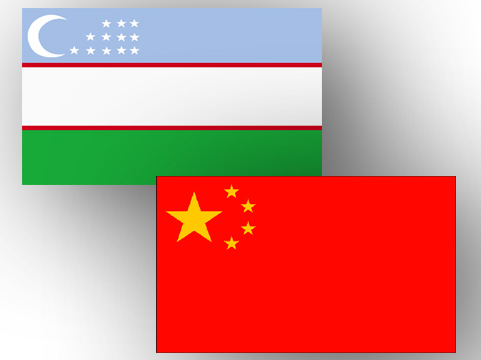 CHINA’S INCREASING INTEREST IN UZBEKISTAN
CHINA’S INCREASING INTEREST IN UZBEKISTAN
Özge Nur ÖĞÜTCÜ 21.02.2017 -
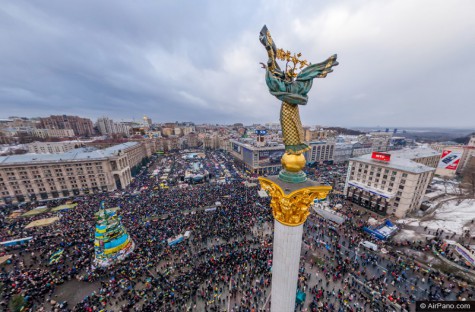 A BRIEF EVALUATION AFTER MINSK SUMMIT
A BRIEF EVALUATION AFTER MINSK SUMMIT
Özge Nur ÖĞÜTCÜ 01.09.2014 -
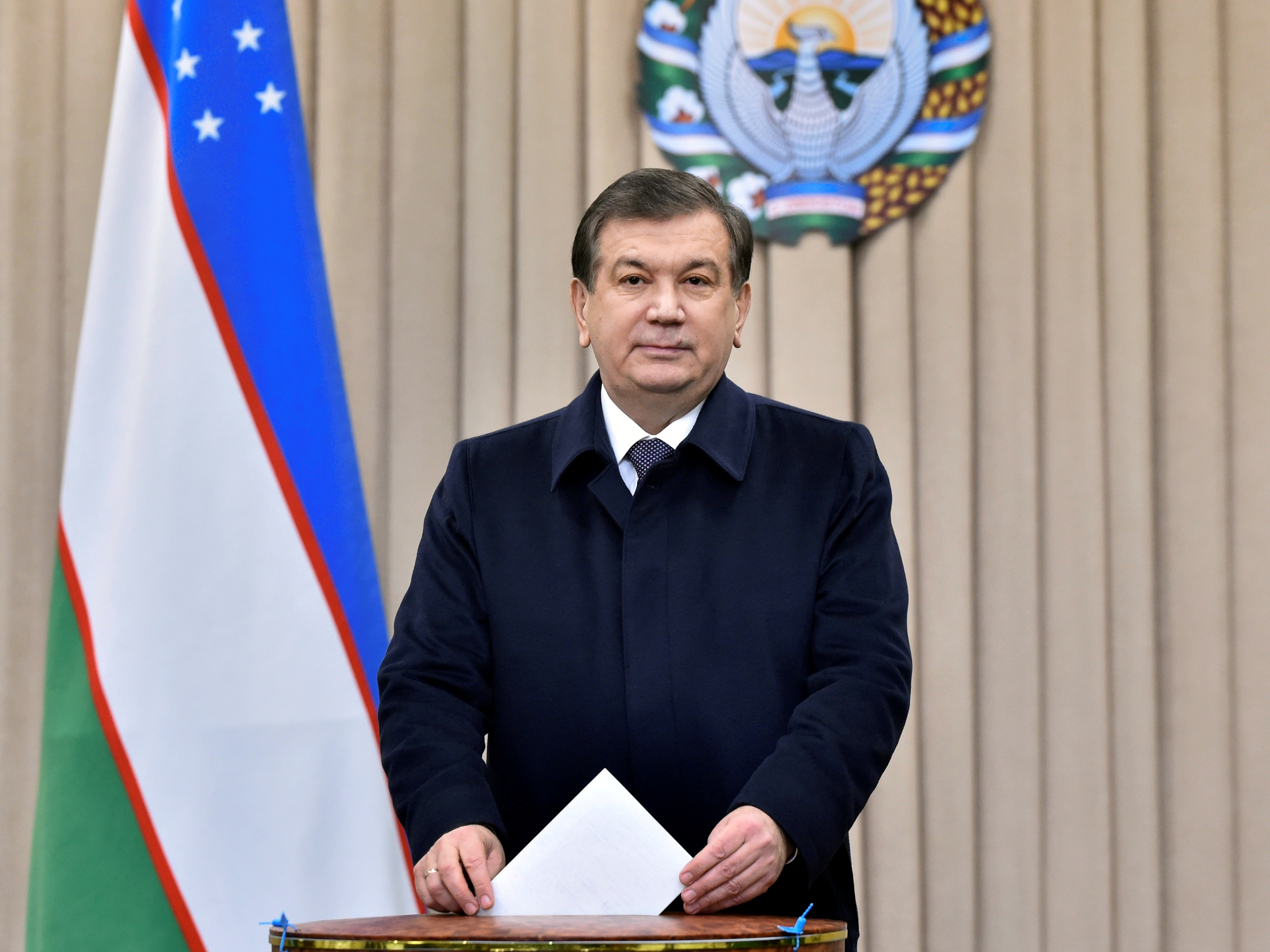 UZBEKISTAN’S REGIONAL POLICIES UNDER NEW PRESIDENT: A NEW ERA?
UZBEKISTAN’S REGIONAL POLICIES UNDER NEW PRESIDENT: A NEW ERA?
Özge Nur ÖĞÜTCÜ 18.08.2017
-
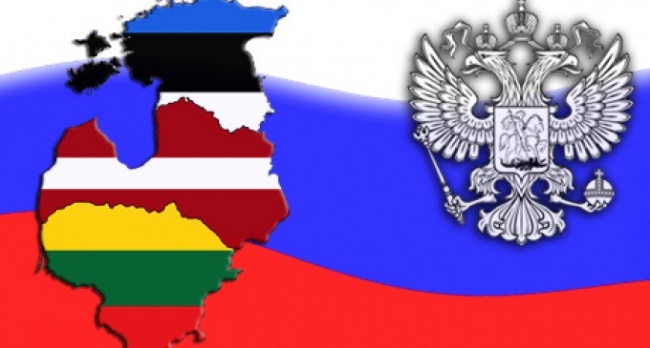 THE BALTIC COUNTRIES: 25 YEARS OF ACCOMPLISHMENT AND FEAR
THE BALTIC COUNTRIES: 25 YEARS OF ACCOMPLISHMENT AND FEAR
Teoman Ertuğrul TULUN 07.12.2016 -
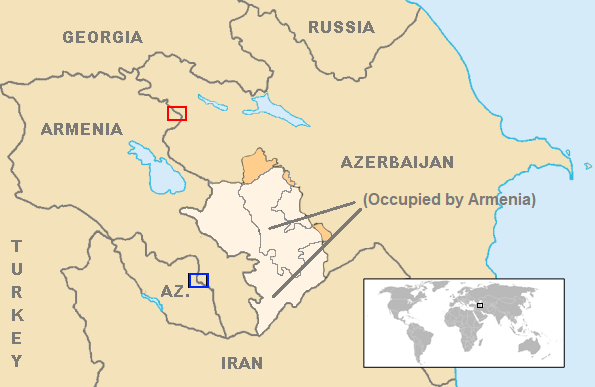 FROM POINT SHOTS TO ARMED CONFLICT: HOW DID AZERBAIJAN-ARMENIA REACH THE BRINK OF WAR?
FROM POINT SHOTS TO ARMED CONFLICT: HOW DID AZERBAIJAN-ARMENIA REACH THE BRINK OF WAR?
Tutku DİLAVER 14.08.2020 -
 ARMENIAN JOURNEY FROM “OPERATION NEMESIS”, ASALA MURDERS AND KHOJALY MASSACRE TO PRESENT DAY “ARMENOPHOBIA” FABRICATION
ARMENIAN JOURNEY FROM “OPERATION NEMESIS”, ASALA MURDERS AND KHOJALY MASSACRE TO PRESENT DAY “ARMENOPHOBIA” FABRICATION
AVİM 06.03.2019 -
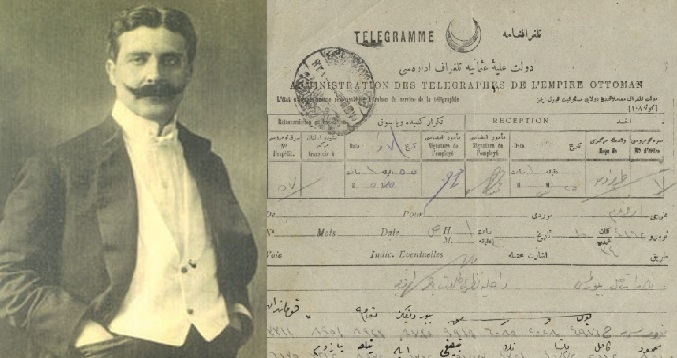 FROM SMOKING GUN TO MUDDIED WATERS: THE ALLEGED TELEGRAM OF BAHAEDDIN ŞAKIR
FROM SMOKING GUN TO MUDDIED WATERS: THE ALLEGED TELEGRAM OF BAHAEDDIN ŞAKIR
Sean Patrick SMYTH 05.06.2017 -
 BECOMING THE PART OF THE PROBLEM: THE FAULTY POLICIES OF THE WEST IN EURASIA AND THE SOUTH CAUCASUS
BECOMING THE PART OF THE PROBLEM: THE FAULTY POLICIES OF THE WEST IN EURASIA AND THE SOUTH CAUCASUS
Turgut Kerem TUNCEL 11.08.2015
-
25.01.2016
THE ARMENIAN QUESTION - BASIC KNOWLEDGE AND DOCUMENTATION -
12.06.2024
THE TRUTH WILL OUT -
27.03.2023
RADİKAL ERMENİ UNSURLARCA GERÇEKLEŞTİRİLEN MEZALİMLER VE VANDALİZM -
17.03.2023
PATRIOTISM PERVERTED -
23.02.2023
MEN ARE LIKE THAT -
03.02.2023
BAKÜ-TİFLİS-CEYHAN BORU HATTININ YAŞANAN TARİHİ -
16.12.2022
INTERNATIONAL SCHOLARS ON THE EVENTS OF 1915 -
07.12.2022
FAKE PHOTOS AND THE ARMENIAN PROPAGANDA -
07.12.2022
ERMENİ PROPAGANDASI VE SAHTE RESİMLER -
01.01.2022
A Letter From Japan - Strategically Mum: The Silence of the Armenians -
01.01.2022
Japonya'dan Bir Mektup - Stratejik Suskunluk: Ermenilerin Sessizliği -
03.06.2020
Anastas Mikoyan: Confessions of an Armenian Bolshevik -
08.04.2020
Sovyet Sonrası Ukrayna’da Devlet, Toplum ve Siyaset - Değişen Dinamikler, Dönüşen Kimlikler -
12.06.2018
Ermeni Sorunuyla İlgili İngiliz Belgeleri (1912-1923) - British Documents on Armenian Question (1912-1923) -
02.12.2016
Turkish-Russian Academics: A Historical Study on the Caucasus -
01.07.2016
Gürcistan'daki Müslüman Topluluklar: Azınlık Hakları, Kimlik, Siyaset -
10.03.2016
Armenian Diaspora: Diaspora, State and the Imagination of the Republic of Armenia -
24.01.2016
ERMENİ SORUNU - TEMEL BİLGİ VE BELGELER (2. BASKI)
-
AVİM Conference Hall 24.01.2023
CONFERENCE TITLED “HUNGARY’S PERSPECTIVES ON THE TURKIC WORLD"









